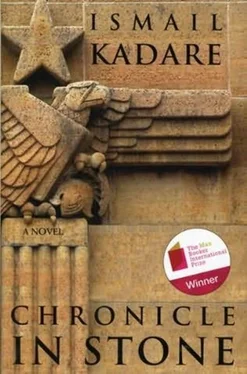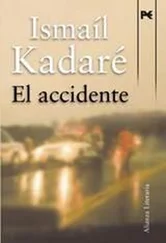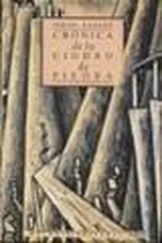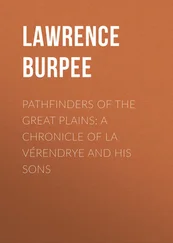Ismaíl Kadaré - Chronicle in Stone
Здесь есть возможность читать онлайн «Ismaíl Kadaré - Chronicle in Stone» весь текст электронной книги совершенно бесплатно (целиком полную версию без сокращений). В некоторых случаях можно слушать аудио, скачать через торрент в формате fb2 и присутствует краткое содержание. Жанр: Современная проза, на английском языке. Описание произведения, (предисловие) а так же отзывы посетителей доступны на портале библиотеки ЛибКат.
- Название:Chronicle in Stone
- Автор:
- Жанр:
- Год:неизвестен
- ISBN:нет данных
- Рейтинг книги:4 / 5. Голосов: 1
-
Избранное:Добавить в избранное
- Отзывы:
-
Ваша оценка:
- 80
- 1
- 2
- 3
- 4
- 5
Chronicle in Stone: краткое содержание, описание и аннотация
Предлагаем к чтению аннотацию, описание, краткое содержание или предисловие (зависит от того, что написал сам автор книги «Chronicle in Stone»). Если вы не нашли необходимую информацию о книге — напишите в комментариях, мы постараемся отыскать её.
Chronicle in Stone — читать онлайн бесплатно полную книгу (весь текст) целиком
Ниже представлен текст книги, разбитый по страницам. Система сохранения места последней прочитанной страницы, позволяет с удобством читать онлайн бесплатно книгу «Chronicle in Stone», без необходимости каждый раз заново искать на чём Вы остановились. Поставьте закладку, и сможете в любой момент перейти на страницу, на которой закончили чтение.
Интервал:
Закладка:
“Why do you stay shut up in the house all day? Go out and play with your friends.”
“Ssh, Grandmother.”
I was waiting to hear Aqif Kashahu’s death scream. It must have all been over by now. I heard a knock. Then another. Bido Sherifi’s wife appeared in the window. She was trying to wash the blood from her hands. She shook them. A cloud of flour drifted down. The flour was red with blood.
Grandmother put her hand on my forehead.
Another flourish of trumpets came from downstairs.
“Go and see the big cauldron they’re taking out of the basement,” said Grandmother. “I don’t have the heart to watch.”
For several days they had been talking about selling the big copper cauldron. Now the dealer had come and the big cauldron, as it left the house, was chiming farewell. Trumpets and alarum within .
Night had fallen. Again the city sank into a darkness peopled with keeps, foreign names and owls.
“That book has addled your brain,” Grandmother said. “Go to Grandfather’s tomorrow to clear your mind.”
“All right, I’ll go.”
Margarita…
I was exhausted. My head sank onto the windowsill.
The next day I set out for Grandfather’s. When I passed the Bridge of Brawls and turned into Citadel Street the city was suddenly freed of its keeps and night-owls. I was almost running for the last part of the way.
“Where’s Margarita?” I asked Grandma, who was kneading dough for bread rolls.
“What do you want with Margarita?” she asked. “You’d do better to start by asking how Grandfather is, or your aunts and uncles, instead of starting right out with ‘Where’s Margarita?’”
“She’s not gone, is she?”
“No, she’s still here,” Grandma said in a mocking tone, muttering to herself as she kept on kneading dough.
I wandered around the house for a while and then, since I had nothing else to do, I went up to the roof where I liked to sit for hours on the light-coloured, slanting slates near the old dormer. People looked different from the roof. I was watching a half-rotten telegraph pole when I remembered the box I had filled with Grandfather’s cigarette butts and had hidden in the attic, along with a Turkish book and a box with two or three matches. I really wanted to smoke on the roof, holding in my lap the Turkish book with its sickly, yellowing pages.
I was thinking about lighting a cigarette, so I crawled to the dormer, stuck my arm through the pieces of dusty broken glass, and took out the book first, then the box of tobacco, and finally the matchbox. The cover of the book was mouldy and the pages, which had got wet, were stuck together. I tore off a piece of the back cover and though the tobacco looked a little mouldy too, I rolled a cigarette as well as I could, took it in my mouth and tried to light it. But the match was wet and wouldn’t light.
I put everything back on a blackened beam in the attic, and as I was shaking the dust off my arm, I got another idea.
The old attic was just above Margarita’s room. Once it had provided light for the small hallway, but when part of the hallway was turned into a room, the attic became useless; it didn’t light anything any more.
The idea that I could see what Margarita was doing shook me out of my lethargy. To be safe, I pulled out the fragments of broken glass still hanging in the window frame, then put one foot through and onto a beam and slipped in under the roof. I started climbing downwards, clinging to the blackened beams that crisscrossed in every direction. A minute later I was on the ceiling of her room. I moved slowly and noiselessly, crawling on my stomach until I came to a crack. I peered through.
The room was empty.
Where could Margarita be? On the blanket she used as a bedspread some pieces of delicate underwear were neatly folded. I heard a splash and realised that she was taking a bath.
I waited a long time for her to come out of the bath. She was all wrapped up in a big bathrobe, her hair hanging down loose, still wet. She went to the mirror, picked up a comb, and started to run it through her hair. She sang softly to herself:
In far-away Holland
In the land of windmills…
Still singing, she took her powder-box from the dressing table and undid her bathrobe. Puffy clouds wafted from her cleavage and her armpits as if she was an extraterrestrial being.
When she took off her robe entirely and leaned over to take her underwear from the bed, I closed my eyes. When I opened them, the lace on her body was like white butterflies perched in arcs across her breasts, hips and the tops of her thighs, like those white butterflies of the fields that come out in the spring and that I had chased so often without ever catching one.
I was lying there in a daze, when I heard Grandma’s voice. She was looking all over for me. My aunt was calling too, from the courtyard.
I got up carefully and climbed back over the beams, hoisted myself onto the roof again and slid down along the back wall of the house.
“Where were you?” asked Grandma. “How did you get so filthy?”
“On the roof,” I answered.
“What were you doing on the roof? You’ll shift the slates and when it rains we’ll have leaks again.”
“No, Grandma, I was careful.”
“I doubt it,” she said. “Come on, it’s time to eat.”
Grandma always smelled like fresh bread, and whenever I got hungry, I always thought of her, with her milky complexion and her spreading shape which set the old joists of our house groaning, as if to protest: “Ouch! Grandma, you’re crushing us, and we can’t take any more.”
Grandfather said those ritual Turkish words that always seemed magical to me and we all started eating. I noticed that Grandma seemed angry because the pans and spoons in her hands were more than usually noisy. Whenever she was angry her gestures were rougher. Finally she couldn’t contain herself any more and burst out, “The hussy!”
The word made no impression on the others, who calmly went on chewing. They all seemed to know who she was talking about.
“Who’s a hussy, Grandma?” I asked.
Grandfather shot her a disapproving look and she nodded her head, still looking furious, as if to say, “Yes, all right, all right.”
“None of your business,” she said to me, suddenly taking the pot from the table.
“If it had been me,” said the older of my aunts, “I would’ve grabbed it right out of her hands.”
“What next! I wouldn’t stoop to fight with such trash.”
I could never imagine Grandma fighting with anyone; all my life I had never seen her doing anything but cooking and kneading dough for her bread.
“Drop the subject,” Grandfather said, tilting his head in my direction. Everyone obeyed, but Grandma still seemed angry, for the pans were being banged around even louder. Grandfather, who couldn’t stand noise, was the first to leave the table.
“Dirty hussy,” Grandma started up again.
“You should’ve grabbed it right off the clothesline yourself,” my elder aunt said again.
My younger aunt opened the newspaper and started reading.
“Put the paper down,” said Grandma. “Papers are for men.”
My aunt burst out laughing.
“What’s so funny? You see everyone’s upset and all you can do is sit there reading the paper and laugh.”
My aunt got up and walked out, taking the newspaper with her.
“Today the table linen, tomorrow the spoons, and next the carpets,” Grandma went on.
Now they were talking about it openly and I realised what was happening. Margarita was stealing.
“Why have you left your food on your plate?” my other aunt asked.
“I’m full,” I said, getting up from the table.
Читать дальшеИнтервал:
Закладка:
Похожие книги на «Chronicle in Stone»
Представляем Вашему вниманию похожие книги на «Chronicle in Stone» списком для выбора. Мы отобрали схожую по названию и смыслу литературу в надежде предоставить читателям больше вариантов отыскать новые, интересные, ещё непрочитанные произведения.
Обсуждение, отзывы о книге «Chronicle in Stone» и просто собственные мнения читателей. Оставьте ваши комментарии, напишите, что Вы думаете о произведении, его смысле или главных героях. Укажите что конкретно понравилось, а что нет, и почему Вы так считаете.












